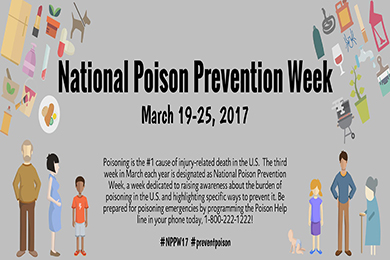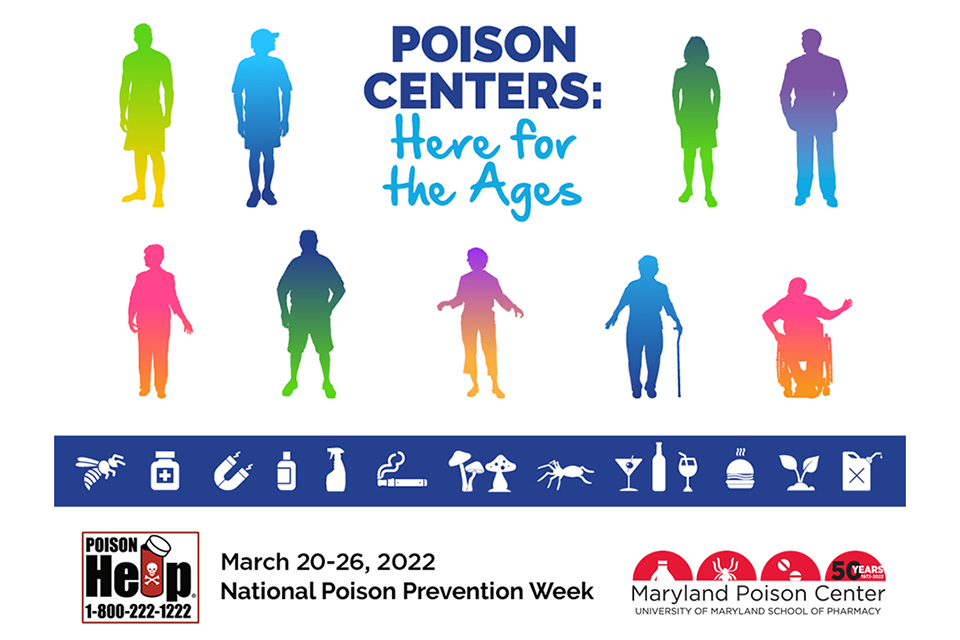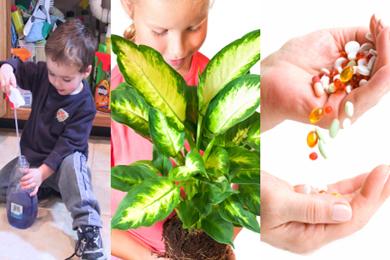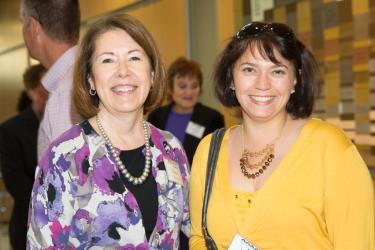MPC Celebrates National Poison Prevention Week 2017
Observed March 19-25, National Poison Prevention Week helps raise awareness about the dangers of poisonings and promotes steps that families can take to prevent them.

By Malissa Carroll
March 15, 2017
Since 1962, the third week of March has been celebrated by presidential decree as National Poison Prevention Week (NPPW), providing poison centers across the country — including the Maryland Poison Center (MPC) — an opportunity to raise awareness about the dangers of poisonings and highlight steps that families can take to prevent them. This year, NPPW will be observed March 19-25, and will focus on several poison prevention-related themes:
- Monday, March 20 – Children Act Fast, So Do Poisons
- Tuesday, March 21 – Poison Centers: Saving You Time and Money
- Wednesday, March 22 – Poisonings Span a Lifetime
- Thursday, March 23 – Home Safe Home
- Friday, March 24 – Medication Safety
According to the Centers for Disease Control and Prevention (CDC), poisoning is the number one cause of injury death in the United States, with most of these deaths caused by drug and medication misuse and abuse. The MPC — part of the Department of Pharmacy Practice and Science (PPS) at the University of Maryland School of Pharmacy — is a 24-hour telephone service that offers free, fast, and confidential expert advice about poisonings and overdoses. It has provided poisoning treatment advice, education, and prevention services to individuals living across the state of Maryland since 1972, and is certified by the American Association of Poison Control Centers (AAPCC) as a regional poison center.
“The MPC, along with the nation’s other 55 poison centers, is committed to safeguarding the health and well-being of every American through proactive poison prevention and free, confidential, and expert medical services,” says Bruce Anderson, PharmD, DABAT, FAACT, director of operations for the MPC and professor in PPS. “The Center is staffed 24/7 by pharmacists and nurses who are certified as specialists in poison information and uniquely trained to help individuals who have been exposed to a poison or have questions about a potential poisoning.”
Although approximately half of the calls received by the MPC involve children younger than six years old, teens, adults, and seniors are also at risk for poisoning. To help prevent poisonings in your home, follow these tips from the MPC:
- Program the Poison Center phone number in your cell phone. Your local poison center can be reached anywhere in the United States by dialing 1-800-222-1222. You can also text the word “poison” to 797979 to receive the Poison Center’s contact information. Save this contact and share it with your friends.
- Read and follow directions on the label before using medicines and household products.
- Follow the Poison Safety Checklist to make sure all medicines, poisons, and harmful household products are stored out of the sight and reach of children.
- Keep all household products and medicines in their original containers. Never put chemicals or cleaning products in empty food or drink containers.
- Always ask for medicine in child-resistant containers, but remember that these containers are not child-proof. If given enough time, children can often open the safety caps.
- Know the names of plants in and around your home, and remove poisonous ones from the house and yard.
- Teach small children never to touch or taste something unless they ask an adult.
- Put medicines away after each dose, even if they will be taken again in a few hours.
- Have a carbon monoxide alarm in your home if you have a fireplace, wood burning stove, or other gas appliances.
Individuals living in the state of Maryland can participate in NPPW by following the Maryland Poison Center on Facebook and Twitter.
Families in Maryland who would like more information about poison prevention can request a Mr. Yuk packet for their homes. This packet contains information about poison safety, Mr. Yuk stickers, telephone stickers, and a magnet that can help families prevent or prepare for poisoning emergencies.



